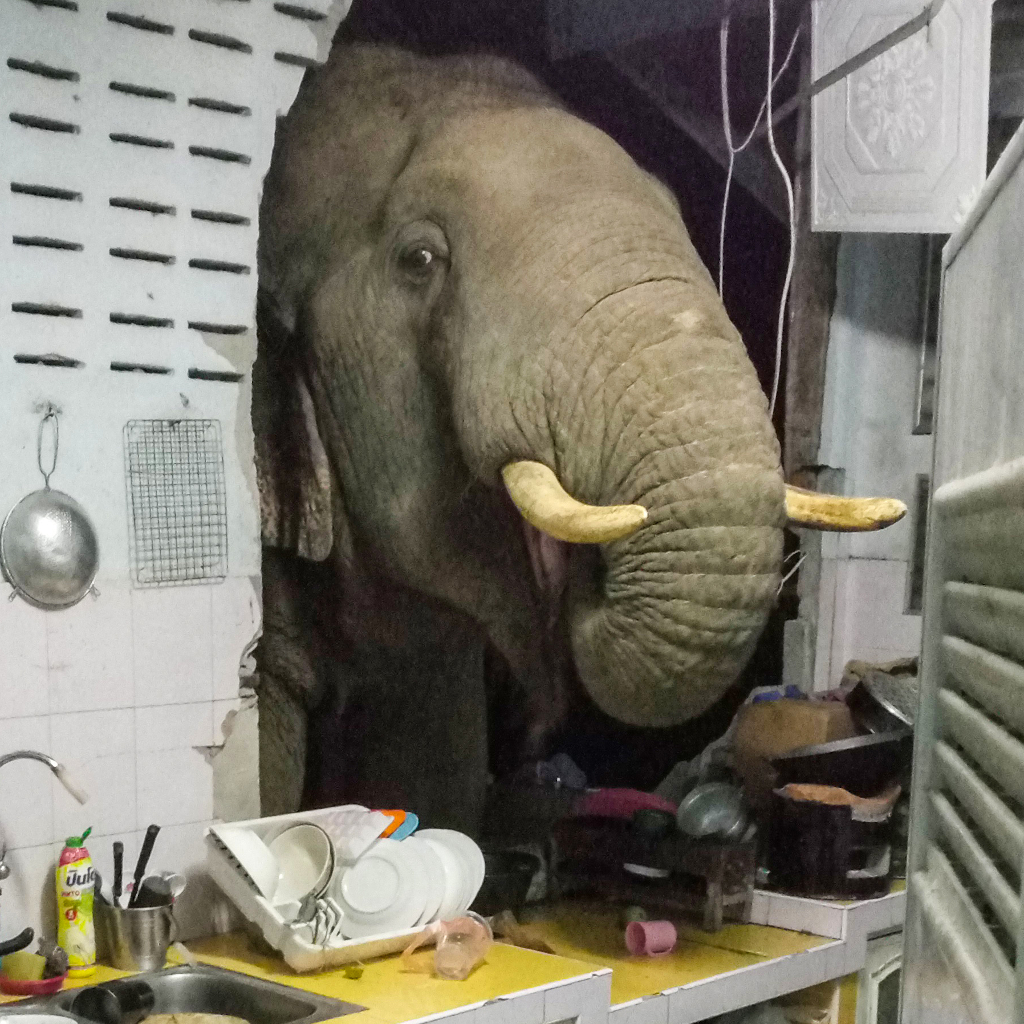It’s an unprecedented – and massive – experiment: Since 2017 the U.S.-based charity GiveDirectly has been providing thousands of villagers in Kenya what’s called a “universal basic income” – a cash grant of about $50, delivered every month, with the commitment to keep the payments coming for 12 years. It is a crucial test of what many consider one of the most cutting-edge ideas for alleviating global poverty. This week a team of independent researchers who have been studying the impact released their first results…
When it came to measures of well-being such as consumption of protein or spending money on schooling, all of the groups who were given cash were better off than people in the control group that got no money. This fits with previous studies of no-strings cash aid, which find that poor people generally use the money productively rather than wasting it on alcohol, cigarettes or other vices.
Conservatives: “I’ll ignore that.”
Really brilliant work by the researchers though, I’m glad these sorts of experiments are happening.
True. Facts won’t change their views, no matter how much research went into it.
And even if they somehow end up being in the same spot as the “test subjects”, it’s other people’s fault - preferably easily identifiable targets like minorities. Zero empathy, massive ego.
Of course one would expect people being given aid in any form to do better than people who did not. That is hardly a useful result, technically all it requires is that a single person in each receiving group do something more productive than burn it. More importantly the claim by UBI proponents is that providing cash payments to everyone produces better outcomes than the current system. In wealthier countries the current system is not “no money” like they tested in the experiment but needs-based subsidies for certain goods. In order to claim that UBI is actually a good option to transition to you need to test it against the current system, not one that doesn’t exist.
There’s been so many studies on UBI and they all show that it works, but people just don’t like their taxpayer money going to other people. It’s a real common attitude and I can sympathise with it, but it’s small-minded and destructive in the long run. The richest people in the world spend money to get people to think like that so they’re blind to the bigger picture: The world is the richest and most productive it’s ever been - so why is everyone is so damn poor? Do we really have to fight over crumbs?
There are an infinite number of ways to set up UBI, and without ongoing results from studies like this - a 12-year study that just reported in year 2 - no one knows which structure works sustainably.
This is the natural course of capitalism. Accumulation of wealth through private ownership of factories and corporations means concentration of power at the capitalist ruling class, and never-ending rise in inequality.
It rewards those who are greedy and willing to exploit others.
But the big news came on a different measure: people’s likelihood of starting a business. On this front, those who got the money in a lump sum vastly outperformed people who were promised the same amount for just two years but received it in monthly installments. For instance lump-sum recipients had 19% more enterprises – businesses such as small shops in local markets, motorbike taxis and small-scale construction concerns. And the lump sum recipients’ net revenues from their businesses were a whopping 80% higher.
Interesting that a lump sum worked better but it makes sense for those starting businesses, you need to invest.
Other points:
Giving to everyone in a town seems to be useful because everyone knows everyone else has additional income, so there may be a market for the new motorbike taxis or whatever. That makes sense to me too.
Also, no inflation. Some of that might be because it was only a town and you can always go to the next town over. But it might also be because inflation is “too many dollars chasing not enough goods” and when they started businesses, they produced more goods. So it balanced out.
UBI could be a potential cash savings for governments as well. If the intent is to replace other larger targeted aid departments such as food and healthcare, the cost savings from reduced staffing needs would be interesting. Conversely, the loss of government jobs in those departments would also have a significant impact.
Perhaps it could be an option to choose a lump payment at any time with the caveat that you don’t receive the monthly amount until you’ve caught back up. Like you can do monthly payments as default, but if you have enough savings and want to make a larger purchase/investment you can take a lump payment of 3, 6, or 12 months and then go back to monthly after that time has passed. Some people may prefer to take a lump sum every 12 months too, everyone handles finances differently.
Yeah because what happens in a village in Kenya will happen in every part of the globe…
The basic economic principles should work pretty similarly.





